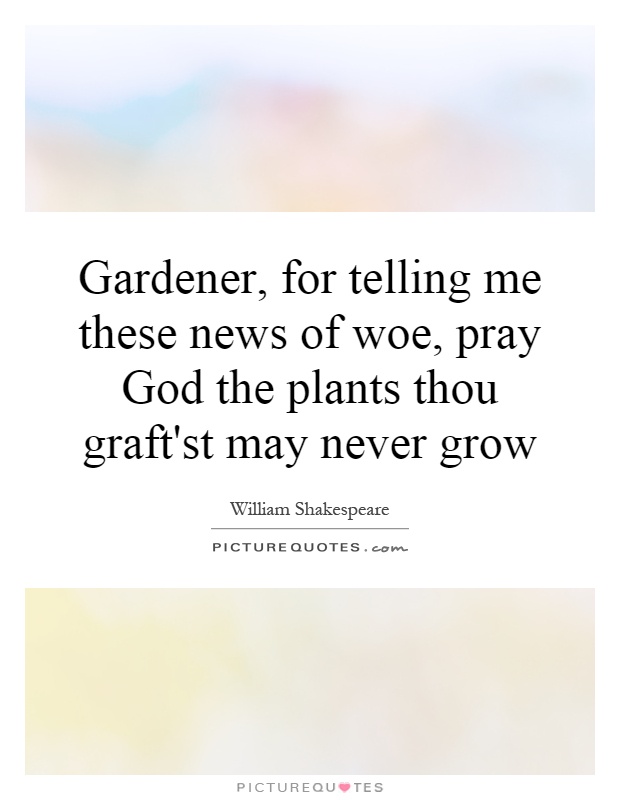Gardener, for telling me these news of woe, pray God the plants thou graft'st may never grow

Gardener, for telling me these news of woe, pray God the plants thou graft'st may never grow
The line "Gardener, for telling me these news of woe, pray God the plants thou graft'st may never grow" is from Act 3, Scene 4 of William Shakespeare's play "Richard II". In this scene, Queen Margaret is speaking to the Gardener after he has informed her of the current state of affairs in the kingdom. The news is grim, with political unrest and turmoil threatening the stability of the realm.Queen Margaret's words to the Gardener are a reflection of her despair and hopelessness in the face of the chaos that surrounds her. She is essentially saying that she wishes the plants the Gardener tends to will never bear fruit, as a metaphor for the bleak future that lies ahead for the kingdom.
The use of the metaphor of plants and grafting in this line is significant, as it reflects the idea of growth and cultivation. In Shakespeare's time, gardening was often used as a metaphor for the process of nurturing and developing something, whether it be a plant or an idea. In this context, Queen Margaret's words can be seen as a lament for the potential that has been lost due to the political strife that has engulfed the kingdom.
Furthermore, the use of the word "woe" in this line emphasizes the sense of sorrow and grief that Queen Margaret feels upon hearing the news from the Gardener. It is a powerful expression of her emotional state, as she grapples with the harsh realities of the world around her.
Overall, this line from "Richard II" is a poignant reminder of the fragility of power and the consequences of political turmoil. It serves as a reflection on the destructive nature of conflict and the toll it takes on those caught in its wake. Shakespeare's use of language and imagery in this line captures the essence of Queen Margaret's despair and adds depth to the themes of the play.












 Friendship Quotes
Friendship Quotes Love Quotes
Love Quotes Life Quotes
Life Quotes Funny Quotes
Funny Quotes Motivational Quotes
Motivational Quotes Inspirational Quotes
Inspirational Quotes